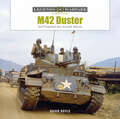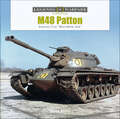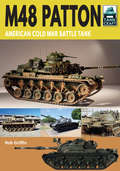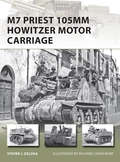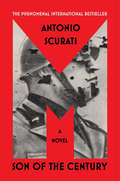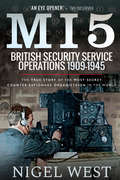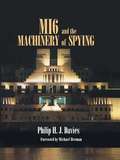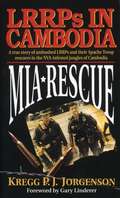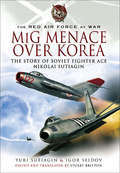- Table View
- List View
M42 Duster: Self-Propelled Anti-Aircraft Vehicle
by David DoyleThe M42 was an anti-aircraft vehicle, which was pressed into ground combat during the war
M48 Patton vs Centurion
by David HigginsThe Indo-Pakistani War of 1965 witnessed the largest tank battles seen since World War II, notably between India's British-made Centurion Mk 7s and the American-made M48 Pattons fielded by Pakistan. Following nearly two decades of tensions and sporadic conflict between India and Pakistan, in August 1965 several thousand Pakistani soldiers entered the disputed territory of Kashmir disguised as local civilians, to which India responded with a successful ground assault. After a week of fighting, India's 1st "Black Elephant" Armoured Division launched an offensive toward Sialkot, where it rebuffed Pakistan's 6th Armoured Division, which suffered considerable tank losses. The ensuing battle at Chawinda on 14-16 September 1965 would demonstrate that the Centurion, with its 105mm gun and heavier armour, generally proved superior to the faster, lighter but overly complex Patton, mounting a 90mm main gun; however, the latter performed exceedingly well in the Sialkot sector, exacting a disproportionately heavy toll on its Indian opponents.Featuring full-colour artwork, expert analysis and absorbing combat accounts, this is the story of the clash between the Centurion and the M48 Patton in the massed armour battles of the Indo-Pakistani War of 1965.
M48 Patton: America's First "Main Battle Tank"
by David DoyleA fantastic collection of images, which showcase the M48 both in combat and in its technical details
M48 Patton: American Cold War Battle Tank (Tank Craft #22)
by Robert GriffinA fully illustrated and historically informative guide to building scale models of the U.S. Army’s iconic Cold War main battle tank. The M48 Patton main battle tank was one of the longest-serving and most successful designs in the U.S. military. A significant advance from the Sherman and M47, the M48 formed the backbone of American armored forces during the early years of the Cold War. It saw combat in Vietnam, during the Indo-Pakistan wars and in the Middle East, especially during the Iran-Iraq War.Archive photos of the M48 in service and extensively researched color profile illustrations depict the tank throughout its operational life. A large part of the book showcases available model kits and aftermarket products, complemented by a gallery of beautifully constructed and painted models in various scales. Technical details as well as modifications introduced during production and in the field are also examined and provide everything the modeler needs to recreate an accurate representation of the M48.
M551 Sheridan: US Airmobile Tanks 1941-2001
by Steven Zaloga Tony BryanOne of the weaknesses of airmobile forces has always been their vulnerability to enemy armor. Since the 1940s, there have been numerous schemes to field light tanks that could be deployed by parachute or other methods to reinforce paratroopers and other airmobile forces. This book tells the story of the US experience with airmobile tanks, starting with efforts in World War II, notably the M22 Locust airmobile tank. Although not used in combat by the US Army, it was used during Operation Varsity in 1945 by British airborne forces and ended up supporting US paratroopers during this mission on the Rhine river. The book then turns to post-war efforts such as the unique T-92 airborne tank, designed for paratroop drop.The only airborne tank actually manufactured in significant numbers was the M551 Sheridan. The history of this tank provides the focal point of this book, highlighting the difficulties of combining heavy firepower in a chassis light enough for airborne delivery. The book examines its controversial combat debut in Vietnam, and its subsequent combat history in Panama and Operation Desert Storm. It also rounds out the story by examining attempts to replace the Sheridan with other armored vehicles, such as the short-lived M8 MGS and Army LAV programs. From the Trade Paperback edition.
M60 Main Battle Tank 1960-91
by Jim Laurier Richard LathropEntering service in the early 1960s, the M60 tank was in production for 23 years and formed the backbone of US Army and Marine armoured units during the Cold War. Over 15,000 were built in four basic models: the M60, M60A1, M60A2, and the M60A3. Although the M60 had been phased out of US Army service by the time Iraq invaded Kuwait in 1990, M60s were amongst the first Allied tanks to enter Kuwait City with the US Marines. This book examines the design and deployment of the M60, a very widely used vehicle that is still in service today.
M60 Main Battle Tank: America's Cold War Warrior 1959–1997 (Tank Craft #37)
by David GrummittA guide blending the history behind a U.S. battle tank used in the late twentieth century with resources for military vehicle modeling enthusiasts. The M60 was a second-generation American main battle tank, the last in the line of Patton tanks that had first been developed at the end of World War II. It entered operational service with the United States Army in 1960 and some 15,000 M60s were manufactured by Chrysler at the Detroit Tank Arsenal Plant between then and when production ceased in 1983. It served with both the U.S. Army and the U.S. Marine Corps and was the principal tank deployed in Europe in the sixties, seventies and early eighties, providing NATO&’s main armored force at the height of the Cold War. It became one of the most widely used armored fighting vehicles of the twentieth century, serving in the armies of over twenty-five countries. It continued to serve alongside the M1 Abrams into the 1990s before this venerable Cold War warrior was finally retired from active service with the U.S. military in 1997. This volume charts the development of the M60 from its origins in World War II to the Cold War. It focuses on its service with the U.S. military and other NATO armies, examining its combat service in the First Gulf War and also with other armies in the Middle East. The book gives a full account of the wide range of kits and accessories available in all the popular scales and a modeling gallery features builds covering a range of M60s in service with various armed forces. Detailed color profiles provide both reference and inspiration for modelers and military enthusiasts alike.&“Another marvelous Craft series profile – this time on the M-60. For all you gamers getting into &‘WWIII,&’ here&’s the tank that was a US mainstay during the Cold War.&” —Historical Miniatures Gaming Society
M60 Tank: US Cold War MBT
by David DoyleThe M60 was the primary battle tank deployed by the US Military from 1960 until the aftermath of Operation Desert Storm
M60 vs T-62
by Richard Chasemore David Isby Lon NordeenStep onto the battlefield and immerse yourself in the experience of real historic combat. Designed for the battlefields of Europe at the height of the Cold War, the M60 and T-62 were the premier combat tanks of their day. However, it was in the deserts of the Middle East that they finally met in battle. This new Duel title examines the design and development of these main battle tanks, identifying their strengths and weaknesses, and describing and analyzing their performance on the battlefield during the Yom Kippur War, the Iran-Iraq War, and the first Gulf War. Included are color photographs, cutaway artwork, and original illustrations by Richard Chasemore. It's a must-read for fans of the evolution of armored warfare.
M65 Atomic Cannon: Rare Photographs From Wartime Archives (Images of War)
by David DoyleA pictorial history of this powerful piece of artillery, an icon of the Cold War era. In 1949, the US Army wanted an artillery gun that could fire a nuclear warhead in the event that guided missiles and long-range bombers proved insufficient in delivering atomic weapons. The result was the M65 280mm Atomic Cannon. On May 25, 1953, at 0830 hours, an M65 of A Battery, 867th Field Artillery Battalion, let loose with the only nuclear round the type would ever fire. Six battalions of the M65 would eventually be deployed, most in Europe with one battalion sent to the Korean Peninsula. Though never used in combat, they served as a significant tactical nuclear deterrent. Through historic photos, this volume traces the development, production and deployment of this iconic piece of military equipment from the drawing boards to the Cold War battlefields of Europe.
M7 Priest 105mm Howitzer Motor Carriage
by Steven Zaloga Richard ChasemoreFrom El Alemein through Sicily, Italy, Normandy, the Ardennes, and Germany, the Allied M7 Priest self-propelled howitzer and its Canadian/British Sexton 25 pdr version became iconic. It was based on the ubiquitous Grant/Sherman tank and was the most widely manufactured vehicle of its type in World War II, being used by all major Allied armies including the US, British, Canadian and Free French forces. Besides covering the basic Priest, this book also deals with the major derivative including the British/Canadian Sexton with 25 pdr, and other US Sherman derivatives such as the M12 155mm GMC. The Priest has been widely kitted over the years including the recent Dragon kits (1/35), two Academy 1/35 kits, an older Italeri 1/35 kit (re-released by Tamiya), and numerous small scale offerings including Matchbox, Italeri, etc. and has been an evergreen modeling subject.
M8 Greyhound Light Armored Car 1941-91
by Steven Zaloga Tony BryanThe M8 light armored car was the only significant wheeled combat vehicle used by the US Army in World War II. In conjunction with the lightly armed utility version, the M20, it was the staple of the army's cavalry squadrons for use in reconnaissance and scouting. First entering combat in Italy in 1943, it was widely used throughout the campaign in northwest Europe, though its off-road performance was found to be wanting. This title describes the design and development of the M8, covering the many variants that were produced during World War II and afterwards, along with a comprehensive survey of its operational use.
M: A Novel
by Antonio ScuratiThe massive international bestseller—an epic historical novel that chronicles the birth and rise of fascism in Italy, witnessed through the eyes of its founder, the terrifyingly charismatic figure who would become one of the most notorious dictators of the twentieth century, Benito Mussolini.It is 1919, and the Great War that has ravaged Europe is over. In Italy, the people are exhausted. Tired of the political class. Tired of vague promises, inept moderates, and the agonizing machinations of a democracy that has failed ordinary citizens.While elite leaders have sat idly by, achieving nothing, one outsider—the director of a small opposition newspaper and a tireless political agitator—is electrifying the masses, promising hope for a demoralized nation hungry for change.A former socialist leader ousted by his own party, he is a drifter who knows what it is to feel lost. His voice speaks for the misfits and the outcasts; he is a protector of those who are forgotten. He is Benito Mussolini. And soon Italy—and the world—will be forever remade. In M: Son of the Century, Antonio Scurati tells the story of fascism from within the mind of its founder, the man known to his followers as Il Duce. Steeped in historical detail and interspersed with period documents and sources, this masterful saga explores the seductive power of nationalism and idolatry, revealing how authoritarianism took hold and a nation bent to the will of one ruthless strongman. Provocative and resonant, M is a chilling reminder that the past is never gone, and that it holds urgent lessons for us today.
MARSOC: U.S. Marine Corps Special Operations Command
by Fred PushiesAn illustrated profile of the Marine Corps component of USSOCOM, its origins & history, training & missions, and special equipment & weapons.The United States Marine Corps has a rich tradition of special operations, from World War II’s famed Marine Raiders and Para Marines to Korea and Vietnam’s legendary Marine Force Recon companies. Indeed, when Navy underwater demolition teams, the direct predecessors to the SEALs, performed the preinvasion reconnaissance of Iwo Jima, recon Marines were part of the mission. But when US Special Operations Command (USSOCOM) was created in 1987 in the wake of the abortive Desert One hostage rescue mission, the Marines did not join in. Spec ops on land, sea, and air were covered by the Army, Navy, and Air Force; the Corps felt it needed to keep its top warriors with its conventional forces.In the post-9/11 world, however, the need for special operations forces dramatically increased. With the creation of the Marine Special Operations Command (MARSOC) in 2006, Marines officially become part of USSCOM. Initially drawn from the ranks of Force Recon companies, these highly skilled and combat-proven Leathernecks joined their spec ops brethren in taking the war to al-Qaeda and the Taliban in America’s global war on terrorism.MARSOC’s mission is to win wars before they begin, taking combat beyond the frontlines. When America needs to respond to aggression in distant lands, the call comes to send in the Marines. With the creation of MARSOC, chances are special operations Marines are already there.
MASH
by Richard HookerThe book behind the hit TV series and movie.The doctors and nurses who worked in the Mobile Army Surgical Hospitals (MASH) during the Korean War were well trained, dedicated, and pushed to the brink. And they were young - too young to be doing what they had to do. As Richard Hooker writes in the Foreword, 'A few flipped their lids, but most of them just raised hell, in a variety of ways and degrees.'Meet the true-life heroes and lunatics who fought in the Korean War, and experience the martini-laced mornings, marathon high jinks, sexual escapades, and that perfectly corrupt football game that every fan of the movie will remember. It's also a story of hard work and skill in the face of enormous pressure and odds. Here is where it all began - the novel that made M*A*S*H a legend.
MASH Angels: Tales of an Air-Evac Helicopter Pilot in the Korean War
by Richard C. KirklandAn inspiring first-hand account by military aviation pioneer Richard Kirkland recounts how he and a handful of daring helicopter pilots revolutionized battlefield medical evacuation and blazed the trail for modern air-evac flying. Prior to the Korean War, the helicopter was all but unknown, and rescue was uncertain at best for downed pilots and wounded soldiers stranded behind enemy lines. In MASH ANGELS Richard Kirkland recounts his experiences on the front lines of rescue flying and military medicine. Kirkland, a fighter pilot in the Pacific theatre in World War II, came to helicopter flying after the war almost by accident. Many military higher-ups had little use for this new, &“worthless contraption.&” But its life-saving performances in the Korean War quickly changed minds. The helicopter was the perfect partner for another revolution in military medical care—the Mobile Army Surgical Hospital, or MASH, and the book also documents the real-life experiences of the MASH characters so familiar from the hit TV series: the nurses, surgeons (including the real &“Hawkeye&”), and helicopter pilots who forged a new era in military medical care. &“Helicopters of the Third Air Rescue Group were given credit for picking up 846 pilots and aircrew from behind enemy lines during the Korean War,&” writes Richard Kirkland. &“Add to that 8,373 soldiers and airmen we snatched from the battlefields and air-taxied to the front-line MASH. Quite a feat for a handful of taxi drivers.&”
MG 34 and MG 42 Machine Guns
by Chris Mcnab Ramiro BujeiroWith the MG 34, the German Wehrmacht introduced an entirely new concept in automatic firepower - the general-purpose machine gun (GPMG). In itself the MG 34 was an excellent weapon: an air-cooled, recoil-operated machine gun that could run through belts of 7.92mm ammunition at a rate of 850rpm, delivering killing firepower at ranges of more than 1,000m. Yet simply by changing its mount and feed mechanism, the operator could radically transform its function. On its standard bipod it was a light machine gun, ideal for infantry assaults; on a tripod it could serve as a sustained-fire medium machine gun; aircraft or vehicular mounts turned it into an air defence weapon; and it also served as the coaxial machine gun on numerous tanks.During World War II, the MG 34 was superseded (although it remained in combat use) by a new GPMG - the MG 42. The MG 42 was more efficient to manufacture and more robust, and had a blistering 1,200rpm rate of fire. Nicknamed 'Hitler's buzzsaw' by Allied troops, it was arguably the finest all-round GPMG ever produced, and alongside the MG 34 it inflicted heavy casualties on Allied soldiers on all European and North African fronts. Such were its qualities of firepower and usability that it became the foundation of an entire series of postwar machine guns, including the MG 1 and MG 3 - the latter is still in production and service to this day.Featuring specially commissioned full-colour artwork and drawing upon numerous technical manuals and first-hand accounts, this study explores the technological development, varied roles and lasting influence of the revolutionary MG 34 and MG 42 machine guns and their postwar successors.
MI5: The True Story of the Most Secret counter-espionage Organisation in the World
by Nigel WestThe author of The Kompromat Conspiracy shares the history of MI5, from its beginnings in 1909 to 1945 and its role in the Second World War. MI5 is arguably the most secret and misunderstood of all the British government departments. Its enigmatic title—much more than its proper name, the Security Service—stands in the public mind for the dark world of the secret services. In reality it has a very specific responsibility: counterintelligence. Its purpose is to combat espionage and subversion directed against the UK. Nigel West&’s book traces the history of MI5 from its modest beginnings in 1909 until 1945, focusing on the important role it played in World War II. This includes the story of the sixteen enemy agents rounded up in Britain who were either hanged or shot; the manipulation of the Axis espionage networks by the use of &“turned&” Abwehr agents (the famous Double Cross System) and the all-important check on its success provided by the intercepted German signals decoded at Bletchley; and the various deceptions practiced on the German High Command. Laced with true anecdotes as bizarre and compulsively readable as any John Le Carré novel, this book is the fruit of years of painstaking research. West has traced and interviewed more than a hundred people who figure prominently in the story: German and Soviet agents, counterintelligence officers, and even more than a dozen double agents. In this newly revised edition, Nigel West details the organizational charts which show the structure of the wartime security apparatus, in the most accurate and informative account ever written of MI5 before and during the Second World War.
MI6 and the Machinery of Spying: Structure and Process in Britain's Secret Intelligence
by Philip DaviesPhilip H. J. Davies is one of a growing number of British academic scholars of intelligence, but the only academic to approach the subject in terms of political science rather than history. He wrote his PhD at the University of Reading on the topic 'Organisational Development of Britain's Secret Intelligence Service 1909-1979', and has published ex
MI9: A History of the Secret Service for Escape and Evasion in World War Two
by Helen FryA thrilling history of MI9—the WWII organization that engineered the escape of Allied forces from behind enemy lines When Allied fighters were trapped behind enemy lines, one branch of military intelligence helped them escape: MI9. The organization set up clandestine routes that zig-zagged across Nazi-occupied Europe, enabling soldiers and airmen to make their way home. Secret agents and resistance fighters risked their lives and those of their families to hide the men. Drawing on declassified files and eye-witness testimonies from across Europe and the United States, Helen Fry provides a significant reassessment of MI9&’s wartime role. Central to its success were figures such as Airey Neave, Jimmy Langley, Sam Derry, and Mary Lindell—one of only a few women parachuted into enemy territory for MI9. This astonishing account combines escape and evasion tales with the previously untold stories behind the establishment of MI9—and reveals how the organization saved thousands of lives.
MIA Rescue: LRRPs in Cambodia
by Kregg P. Jorgenson"This is an inspiring story of courage and sacrifice--one hell of an exciting true war story!"--Kenn Miller Author of Tiger the Lurp DogOn 17 June 1970, in Mondol Kiri Province, Cambodia, the five men of Long-Range Reconnaissance Patrol (LRRP) Team 5-2 were about to halt for the day. Night was coming, the skies were dark, and so were the men's thoughts--they'd just found freshly dug NVA bunkers inside a scrub-brush tree line and their position was not secure. As they carefully searched for better night lager, they learned the hard way that they had walked into an ambush kill zone: NVA fire quickly downed two men and wounded two others. In minutes, Team 5-2 had been transformed from the hunters to the hunted. They had no radio comms with their headquarters and had just two rifles and fifteen magazines of ammunition.Two men were down, but the team was not out. MIA RESCUE is the story of Team 5-2 and the heroic and ultimately successful attempts to rescue them despite extraordinarily bad weather and an angry and aware enemy. "Seldom can an author stimulate emotions, from the taste of fear to sweaty palms to the feeling of relief when the mission is over, but Jorgenson does and much more. If the reader was never in combat, he will feel like a Nam vet when he finishes this book."--Jerry Boyle Author of Apache SunriseFrom the Paperback edition.
MIG Alley: The Fight For Air Superiority [Illustrated Edition]
by William Y’bloodIncludes more than 20 photo illustrationsThe fight for air superiority began the day the Korean War started and only ended with the armistice three years later. Once the shock of the North Koreans' invasion wore off, it did not take long for the United States Air Force, assisted by other United Nations air forces, to destroy the North Korean Air Force. The arrival of the MiG-15 in November 1950, often flown by Soviet pilots, changed things considerably however. For the remainder of the war, bitterly contested air battles were fought almost daily. Yet despite a decided numerical superiority in jet fighters, the Communists were never able to gain air superiority, testament to the skill and training of the UN fighter pilots, primarily those U.S. Air Force airmen flying the magnificent F-86 Sabre.
MIG Menace Over Korea: The Story of Soviet Fighter Ace Nicolai Sutiagin
by Igor Seidov Yuri SutiaginThis fascinating biography of a Russian flying ace offers a rare glimpse into the role of the Soviet Air Force during the Korean War. Nikolai Vasil'evich Sutiagin was the top-scoring Soviet flying ace of the Korean War. He flew his MiG-15 in lethal dogfights against American Sabres and Australian Meteors, winning twenty-two victories. For his distinguished service, he was named a Hero of the Soviet Union, the Soviet military&’s highest honor. Now, with the opening of the Russian archives, this authoritative biography presents a full account of Sutiagin&’s life and career. Beyond these official records, the authors draw from the reminiscences of Sutiagin's comrades and his wife's personal diary to present a nuanced and vividly detailed portrait of one of Russia&’s greatest fighter pilots.
MIKE Force
by Shaun DarraghA soldier serving with the MIKE Force in Vietnam wakes every day knowing that it might be his last. You don't run with the indigenous Montagnard strikers expecting to live forever. That's the nature of the beast that haunts American advisors serving with the tough little tribal volunteers in Vietnam's misty, enemy-infested Central Highlands. It's a tough, demanding duty and just the kind of thing that attracts military mavericks like former Peace Corps volunteer Galen St. Cyr, who discovers empathy and a new, mystical identity with the Jarai tribesmen of his MIKE Force unit. St. Cyr finds himself on the outskirts of the regular US military along with hand-picked American, Australian, and Vietnamese Special Forces advisors and quickly discovers that duty with Montagnard soldiers involves more than just beating the bush and killing the enemy. The world of the Jarai is both primitive and complex, and learning to survive in it is the challenge of St. Cyr's turbulent life. On a journey that becomes as much spiritual as military, he virtually becomes Jarai, taking a hauntingly beautiful native lover who commands a squad of assassins and listens to spirit voices, and deals with tribal separatist elements who are planning an anti-government coup.
MIL' Mi-6/-26: Heavy-Lift Helicopters (Flightcraft Ser. #10)
by Yefim Gordon Dmitriy KomissarovDeveloped in the early 1950s to meet a Soviet Army requirement and first flown in June 1957, the Mi-6 was the largest-yet helicopter created in the Soviet Union. Its notable features included a power-plant consisting of two turbo-shaft engines (for the first time on a Soviet helicopter) and stub wings offloading the main rotor in forward flight; the cabin was big enough to accommodate artillery systems and tactical ballistic missiles. Built by two plants, the Mi-6 saw service with the Soviet Air Force (including participation in the Afghan War) and the air arms of several Soviet allies. It also proved valuable as a civil air-lifter during oilfield exploration in Siberia, remaining in service right the way up to 2002.A worthy successor to the Mi-6 appeared in 1977 the Mi-26. With its 20-ton payload, it was (and still is) the worlds largest and most capable transport helicopter. Again, the Mi-26 had both military and commercial uses (the former included participation in several armed conflicts); the type is still in production, being updated to meet modern requirements, and has been exported to several countries in Asia and Latin America.The book describes the history, variants and service career of the Mil big lifters and contains a detailed overview of the scale model kits covering these types which are currently available on the market.
